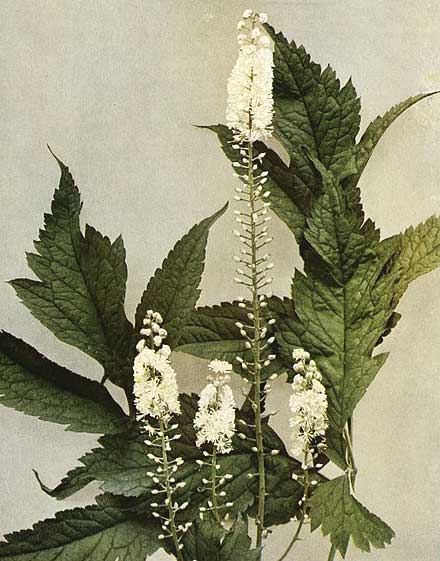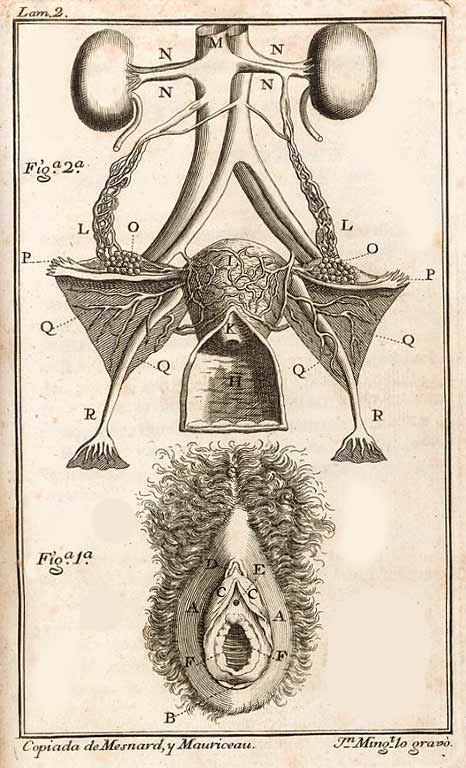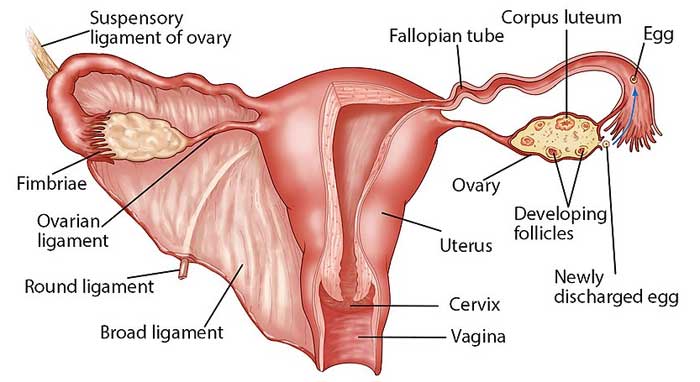Women and herbs

Medicinal herbs are a woman's best friend.
Endometriosis, yeast infections, bladder problems, fertility issues, menopausal symptoms, and other common female health problems can benefit greatly from herbal medicine.
From adolescence to old age, there are herbs to help bring on delayed periods, decrease heavy periods, ease cramps, stop night sweats, even out mood swings, and help control menopausal symptoms.
There are even herbs to help increase milk production for nursing mothers.
Some medicinal herbs are especially suited for women.
Evening primrose oil, wild yam, chasteberry, red clover, black cohosh, clary sage, and other herbs are known to help balance a woman's system.
These "female" herbs can regulate the system during childbearing years, help ease the pain of childbirth, and stop hot flashes during menopause. All through a woman's life, herbs are there to help regulate hormones and make life easier.
Many common female health problems can be solved right at home with herbal medicine, natural remedies, and lifestyle changes.

Medicinal herbs are often used in the treatment of female health problems.
Women’s health problems include everything from mild yeast infections to fertility issues.
I am so thankful that many of a woman's complaints can be treated very successfully with herbs, aromatherapy, and natural remedies.
Directions for making an herbal suppository at home.
Suppositories may be used instead of douching when treating yeast infections.
- Combine a quarter cup of warm cocoa butter with 10 drops of tea tree oil and 5 drops of thyme essential oil.
- Mix well.
- Roll into 10 bullet shaped suppositories and place on a plate lined with waxed paper.
- Place in refrigerator until firm and then store in covered container.
- Use as needed by inserting into vagina and/or rectum until condition is cleared up.

Science, herbal medicine, and women
Data collected from 320 pregnant women in Iran shows that almost 50% of them used some sort of herbal remedy during pregnancy. The most frequently used were sour orange, peppermint, and borage.
Almost 40% of the women did not disclose the use of herbs to their healthcare providers, because they didn't think it was important.
Always tell your doctors and healthcare professionals that you are taking herbs, whether you are pregnant or not! Herbs are medicines. They can react with prescription drugs and affect the outcome of tests.
Doctors and healthcare professionals also need to ask every patient about their supplements. They need to find out everything that their patient consumes!
Doctors and healthcare professionals also need to know about other remedies their patients might be undergoing, including herbal teas, ointments, suppositories, gargles, light therapies, aroma therapies, reflexology, and other healing arts.
When modern medicines and alternative medicines work together, everyone wins.
Women and bladder problems
Women suffer from more bladder and urinary problems than men. Do not drink citrus juice if suffering from urinary problems as this acid can irritate the urinary tract.
Visit my page about treating bladder problems with herbal remedies for more information.
Herbs for vaginal dryness
Vaginal dryness is a problem for many women. Blend equal parts distilled witch hazel and pure aloe vera gel. Mix in some slippery elm powder for use as an herbal lubricant.
Rejuvenate the vagina with a mixture of almond oil, ylang-ylang essential oil, and lavender essential oil. Diluted rose essential oil also works wonders, and even though it is expensive, the results are worth the money.
Diet to increase fertility
Fertility problems are becoming more and more common. Women considering pregnancy should try eating more sesame seeds, pumpkin seeds, nuts, avocados, dried apricots, carrots, soybeans, and oily fish.
Drinking nettle, red clover blossom, and raspberry/blackberry leaf tea can also help increase fertility. Calcium and magnesium supplements are also beneficial to a woman's reproductive system.
Herbs for use during pregnancy
Safe herbs to use during pregnancy include raspberry and blackberry leaf teas, which strengthen the uterus.
Nettle leaf tea is also safe. Nettle tea supports bladder health which is especially important when pregnant.
Oat straw tea is also safe. Oat straw helps calm the nerves and is full of nutrients.
Ginger and chamomile are also considered safe, and can help overcome nausea and morning sickness.
As a side note, safe does not mean drinking huge amounts of any herb! Moderation is important.
During labor, cramp bark tincture can ease contractions. Chamomile and catnip can help the body to relax during childbirth.
Nursing mothers that need more milk should drink fennel seed tea.
Avoid large amounts of parsley and mint while breastfeeding since they reduce milk production.
Emmenagogues, such as parsley, mugwort, pennyroyal, Queen Anne's Lace seeds, and black cohosh are herbs that can cause miscarriage, and should not be used when pregnant. Always consult with your healthcare provider before using any herbal remedy while pregnant or nursing.

Remedies for PMS and painful periods
Unpleasant menstrual problems like bloating, cramps, heavy bleeding, and PMS can be treated with diet and medicinal herbs.
Add foods that contain baron to the diet such as leafy veggies, fruit, nuts, and seeds. Eat more calcium rich foods like corn, tofu, broccoli, and non-fat dairy.
Reduce sugar and alcohol intake. Use evening primrose oil, turmeric, milk thistle seed extract, ginseng, wild yam, chasteberry, and black cohosh in teas and lotions.
Exercise regularly and get a massage at least once a month.
Painful periods and cramps can be sometimes be relieved with something as simple as raspberry leaf and ginger tea.
Also experiment with valerian, peppermint, licorice, basil, black cohosh, yarrow, white willow bark, white oak bark, and strawberry leaf teas and tinctures.
Every woman is different. Try individual herbs and combinations to see which works best for your body.
Endometriosis
Endometriosis is a painful disorder that affects at least 10% of the women in the United States.
Diagnosis is not usually made until a woman seeks help for fertility problems or sever pelvic pain.
For more information on using herbs to treat endometriosis, see my post dedicated to the subject.
Treating menopausal symptoms with herbs
Menopause is normal in women over 50. Menopause is a natural condition of the female body that marks the end of childbearing years – usually around the age of fifty.
Symptoms include hot flashes, night sweats, insomnia, decreased libido, and mood swings.
See treating menopause symptoms with herbs for more info about this subject.

What is a woman?
Women are more than a clitoris, vagina, and a pair of ovaries. They have large brains and know how to use them.
I do think women are wired differently than men. Even though stereotypes are being disproved every day, I think women have a genetic and biological tendency for keeping the peace. We are more nurturing by nature.
Maybe that is why, throughout history, men have been afraid to let women rise to the top. It might hinder the macho war machines which are driven by greed and desire for power.
In today's world, change in this arena is gaining some momentum. Women are beginning to come into their own.
Glass ceilings are being broken. We even have a female vice-president for the first time ever.
Things have changed so much, it is not unheard of for a women to have a penis. A woman can be born in a man's body! Isn't that amazing?
You may wonder how I can claim to believe the Bible and follow Jesus, but still accept transgenders, gays, homosexuals, lesbians, gender neutrals, and other labels people give themselves and each other.
Well, to me that's what they are. They are just labels. I believe in loving everyone.
People's private parts, their sexual partners (among consenting adults), and how they dress are none of my business. Jesus didn't tell me to judge my fellow humans. He told me to love them. He said we are even suppose to love our enemies.
The gay community is certainly not my enemy! All the gay people I know are smart, kind, and interesting.
*Always consult with a healthcare professional before using any herbal remedies especially when pregnant, nursing, or taking prescription medications. Never take any herbal remedies in early pregnancy without consulting your healthcare professional.
Sources:
https://pubmed.ncbi.nlm.nih.gov/29336734/
Blessings to you and yours!
Thanks so much for reading my blog. Jan.

*Note - the information on this website has not been evaluated by the Food and Drug Administration.
© 2005-2024 website design and content by Janice Boling